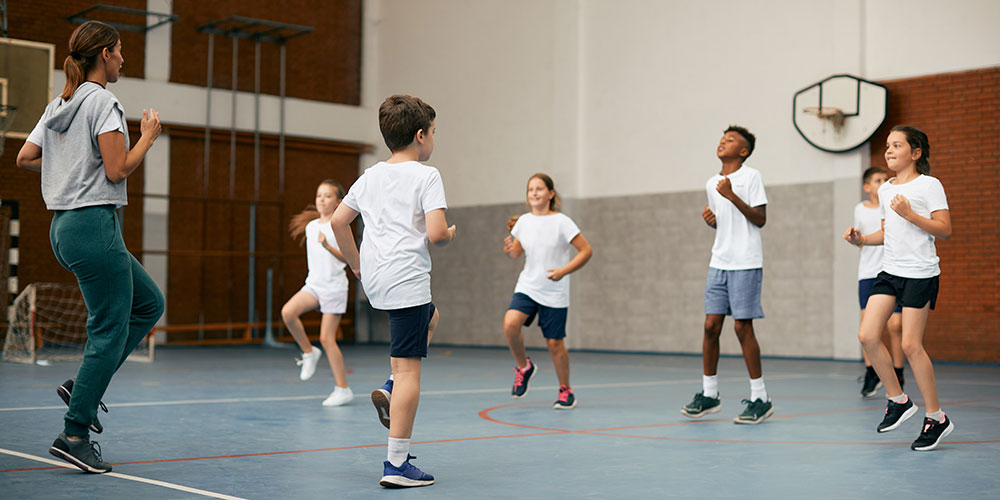Organized sports keep young people active
Children who participate in the activities of the Swiss Youth+Sport program are more likely to maintain an active lifestyle as they grow older.
17 October 2024
Regular physical activity has a wide range of health benefits such as a reduced risk of chronic diseases, better mental health, a higher quality of life and improved cognitive function, which is also reflected in better academic performance. From a public health perspective, it is therefore of paramount importance to promote and maintain physical activity among young people.
However, research shows that young people tend to become less physically active as they get older. Although the age-related decline in physical activity is a natural phenomenon that is also observed in animals, it jeopardizes the achievement of physical activity and health promotion goals.
In the longitudinal study SOPHYA, which was supported in terms of content and funding by the Federal Office of Sport (FOSPO), researchers from the Swiss Tropical and Public Health Institute (Swiss TPH) and the University of Basel investigated how the physical activity behavior of around 430 Swiss children and adolescents aged 6 to 16 years developed over a period of five years. The results were published in the journal Swiss Medical Weekly.
Less decline in physical activity
As expected, physical activity among 6 -16 year olds decreased over the 5-year period, while sedentary time increased. “Despite the probably partly biological decline in physical activity with age, we were able to identify children and adolescents in our study who resisted this age-related decline in physical activity and maintained or even increased their physical activity behavior,” said Johanna Hänggi, scientific collaborator at Swiss TPH and first author of the publication.
The researchers found that participation in the sport activities of the Y+S program had a strong influence on children's and adolescents' physical activity behaviors over a five-year period. Children who participated in organized sports activities were more likely to maintain their physical activity levels as they got older than children who did not participate in Y+S sports activities.
Organized sport in Switzerland has been supported for over 50 years by Y+S, FOSPO's largest sports promotion program for children and young people between the ages of 5 and 20. It supports around 80 sports and disciplines and more than 600,000 participants each year with around 100 million Swiss francs. It is already known that children and young people are more active as a result of the program. However, this is the first time that the impact of the Y+S program on long-term physical activity behavior has been studied.
“The study shows that participation in Y+S courses and camps has a long-term impact on young people's physical activity and that our investment is paying off,” said Pierre-André Weber, head of the Y+S program at FOSPO.
Long-term cohort studies provide important data
The longitudinal study was embedded in the population-based SOPHYA cohort, the first long-term study in Switzerland to objectively measure the physical activity behavior of children and adolescents. It was conducted by the Swiss TPH in collaboration with the Institut des Sciences du Sport de l'Université de Lausanne and the Università della Svizzera italiana. By following around 2,300 children and adolescents from all over Switzerland between 2014 and 2019/20, it was possible to draw long-term, representative conclusions about the development of their physical activity behavior.
“Representative long-term studies are essential for analyzing the long-term benefits of public health interventions, as shown in this study,” said Nicole Probst-Hensch, principal investigator of the SOPHYA study and senior author of the publication. “Ultimately, they provide decision-makers with important data for implementing policies to improve people's health and well-being and for evaluating their impact.”
Original publication
Johanna Hänggi et al.
Participation in organised sports and longitudinal development of physical activity in Swiss youth: the population-based SOPHYA cohort
Swiss Medical Weekly (2024), doi: 10.57187/s.3778



